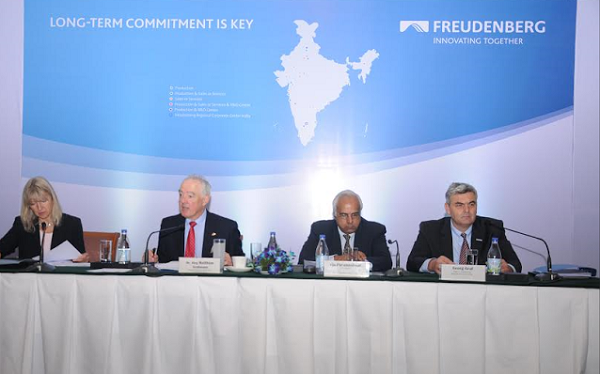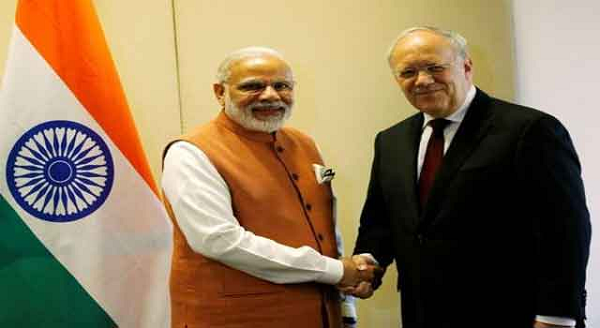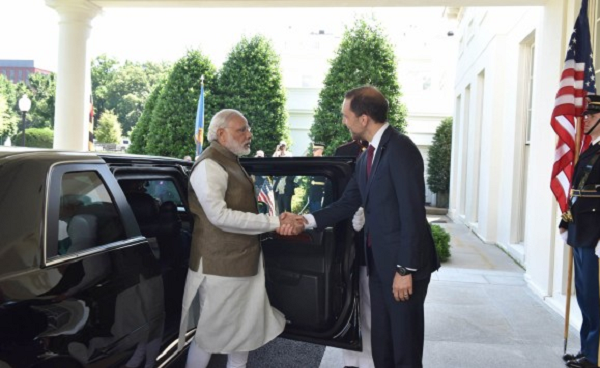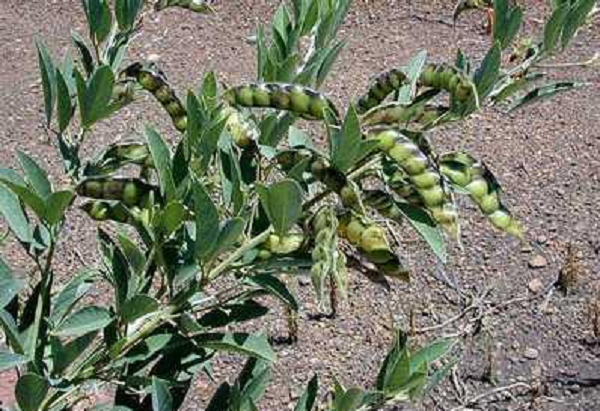
by Editor | May 25, 2021 | Business, Investing, Large Enterprise
 Bengaluru, (IANS) German technologies, products, solutions and services company Freudenberg was on Thursday upbeat on Indian operations with plans to invest Rs 100 crore in Mysore.
Bengaluru, (IANS) German technologies, products, solutions and services company Freudenberg was on Thursday upbeat on Indian operations with plans to invest Rs 100 crore in Mysore.
“Our main focus areas are automotive, construction, food and pharma,” said Freudenberg regional representative Jorg Matthias Grossmann.
Aimed at upgrading and expanding manufacturing and R&D facilities, Freudenberg invested Rs 68 crore in 2015.
Major chunk of the investments were concentrated on the production site, labs and warehouse of the company’s chemical factory in Mysore.
Specialty lubricating oils, greases, pastes, aerosols and release agents under the name of Chem-Trend, OKS and KlAber Lubrication brands are some of its products.
Freudenberg Sealing Technologies has also expressed its commitment to India.
The German company has been operating in India since 2001 through the joint venture Sigma Freudenberg NOK in Mohali, and a new plant was erected in February 2015 at Basma, with 2,000 employees to produce seals for Indian and overseas market.
“These two major investments with a total amount of more than Rs. 290 crore in the past few years underscore our long-term commitment to India. Together with our partners, we will expand our presence and continue to invest in India,” said Grosmann.
“At our sites in Mysore, Pune and Mohali, the R&D facilities develop products tailored to the needs of our local customers. It is part of our group strategy to make globally developed innovations suitable for regional use,” he said.
The company’s Indian sales increased by 3.7 per cent from Rs 1,497 crore in 2014 to Rs 1,553 crore in 2015.
“We have completed another year of profitable and sustainable growth. And our companies in India will continue to grow, much faster than in most other regions of the world,” said Grossman.
Freudenberg established four R&D centres, 14 production sites and employed 2,800 full time associates at 50 locations in India.

by Editor | May 25, 2021 | Economy, News
 Mexico City (IANS), India has bagged crucial support from Mexico and Switzerland, two important members of the Nuclear Suppliers Group (NSG), ahead of a meeting called by the 48-member bloc when India’s application for membership is expected to be taken up.
Mexico City (IANS), India has bagged crucial support from Mexico and Switzerland, two important members of the Nuclear Suppliers Group (NSG), ahead of a meeting called by the 48-member bloc when India’s application for membership is expected to be taken up.
On Wednesday, Mexican President Enrique PeNa Nieto extended his country’s support, saying Mexico supports “positively and constructively India’s membership of the NSG”.
Prime Minister Narendra Modi, on a five-hour stop over visit to the country, thanked President Nieto for his support.
“I thank President Pena Nieto for Mexico’s positive and constructive support for India’s membership of the NSG,” Modi said in his speech after talks between the two leaders here.
Modi had included Mexico and Switzerland in the last minute into his tour itinerary, which originally was for Afghanistan, Qatar and the US.
India’s diplomatic efforts appeared to have borne fruit, with both Switzerland and Mexico backing India’s membership to the elite club that regulates global nuclear trade.
On June 6, Switzerland, an important member of the NSG, extended support to India’s membership in the group during Modi’s stopover in Geneva.
The 48-member NSG has called an “extraordinary” plenary meeting on Thursday when it is expected to take up for review India’s application for membership.
India submitted its application in early May to become a member.
Both Switzerland and Mexico had earlier expressed strong reservations on India’s application for becoming a member of the elite export control regime due to India being a non-signatory of the nuclear Non-Proliferation Treaty (NPT). Consensus among the bloc members is important in allowing entry to a new country.
India has got strong backing from the US for NSG membership with President Barack Obama extending support during Modia’s visit to the US on Tuesday.
India has already got the support of other major NSG countries, including France, Russia and Britain.
China, a major NSG member, is still holding out, citing that India needs to sign the NPT.
India has not signed the NPT on the ground that it is discriminatory.
Pakistan has also applied to become a member of the club, and is being backed by China. Beijing is keen to see that Islamabad gets on board, despite the latter’s poor non proliferation record.
The US has been trying to convince China to support India’s bid, and US Secretary of State John Kerry was in Beijing earlier this week to try and get around China’s reservations on supporting India.
Modi’s is the first visit by an Indian Prime Minister to Mexico after then Prime Minister Manmohan Singh’s visit in 2012 for the G20 Summit.
Mexico is the last stop in Modi’s five-nation tour. He leaves for India on Thursday.

by Editor | May 25, 2021 | Economy, News
 Washington, (IANS) The civilian nuclear agreement signed between India and the US over a decade ago has finally borne fruit with the two sides deciding to start preparatory work on six nuclear power plants in India following bilateral talks between Prime Minister Narendra Modi and US President Barack Obama.
Washington, (IANS) The civilian nuclear agreement signed between India and the US over a decade ago has finally borne fruit with the two sides deciding to start preparatory work on six nuclear power plants in India following bilateral talks between Prime Minister Narendra Modi and US President Barack Obama.
The US also recognised India as a major defence partner.
“Culminating a decade of partnership on civil nuclear issues, the leaders welcomed the start of preparatory work on site in India for six AP 1000 reactors to be built by Westinghouse and noted the intention of India and the US Export-Import Bank to work together toward a competitive financing package for the project,” a joint statement issued following Tuesday’s talks between the two leaders said.
“Once completed, the project would be among the largest of its kind, fulfilling the promise of the US-India civil nuclear agreement and demonstrating a shared commitment to meet India’s growing energy needs while reducing reliance on fossil fuels.”
The US-India Civil Nuclear Cooperation, also known as the 123 Agreement, was signed by then Prime Minister Manmohan Singh and then US President George W. Bush on July 18, 2005.
The AP 1000 is a nuclear power plant designed and sold by Westinghouse, a subsidiary of Japan’s Toshiba.
“Once completed, the project would be among the largest of its kind, fulfilling the promise of the US-India civil nuclear agreement and demonstrating a shared commitment to meet India’s growing energy needs while reducing reliance on fossil fuels,” the joint statement said.
“Both sides welcomed the announcement by the Nuclear Power Corporation of India, and Westinghouse that engineering and site design work will begin immediately and the two sides will work toward finalising the contractual arrangements by June 2017.”
The statement said the US and India shared common climate and clean energy interests and were close partners in the fight against climate change.
“Leadership from both countries helped galvanise global action to combat climate change and culminated in the historic Paris Agreement reached last December,” it stated.
India was also elevated to the status of a major defence partner of the US which, apart from sending a strong message to the world, will also act as a catalyst for defence production under the Make in India initiative.
“Noting that the US-India defence relationship can be an anchor of stability, and given the increasingly strengthened cooperation in defense, the United States hereby recognises India as a Major Defence Partner,” the joint statement said.
According to the statement, both Modi and Obama expressed their desire to explore agreements which would facilitate further expansion of bilateral defence cooperation in practical ways.
“In this regard, they welcomed the finalisation of the text of the Logistics Exchange Memorandum of Agreement (LEMOA),” it said.
The US would continue to work towards facilitating technology sharing with India to the same as level as it does with its closest allies and partners.
“The leaders also committed to enhance cooperation in support of the Government of India’s Make in India Initiative and expand the co-production and co-development of technologies under the Defence Technology and Trade Initiative (DTTI),” the statement said.
Cyber security also came up for discussion between Modi and Obama and this was reflected in the joint statement.
“They committed to deepen cooperation on cybersecurity and welcomed the understanding reached to finalise the framework for the US-India Cyber Relationship in the near term,” it said.
Both the leaders reiterated their commitment to fight terrorism.
“They resolved to redouble their efforts, bilaterally and with other like-minded countries, to bring to justice the perpetrators of terrorism anywhere in the world and the infrastructure that supports them,” the statement said.
In terms of boosting business and economic cooperation, both the leaders also agreed to substantially increase bilateral trade.
“In order to substantially increase bilateral trade, they pledged to explore new opportunities to break down barriers to the movement of goods and services, and support deeper integration into global supply chains, thereby creating jobs and generating prosperity in both economies,” the statement said.

by Editor | May 25, 2021 | Markets, Technology
 By Sourabh Kulesh, New Delhi, (IANS) India is among the top five countries in the world to be attacked by ransomware — malware that forces its victims to pay a ransom through certain online payment methods in order to grant access to their systems, or to get their data back, says an executive from Russia-based software security group Kaspersky Lab.
By Sourabh Kulesh, New Delhi, (IANS) India is among the top five countries in the world to be attacked by ransomware — malware that forces its victims to pay a ransom through certain online payment methods in order to grant access to their systems, or to get their data back, says an executive from Russia-based software security group Kaspersky Lab.
“Ransomware attacks are high in India and it is one the top five countries that has most infections,” Vitaly Kamluk, Head of APAC Global Research and Analysis Team, Kaspersky Lab, told IANS.
According to statistics presented by Kamluk during a roundtable discussion on “Security Threat landscape” here on Friday, India takes the first spot in the list of countries that were attacked by Teslacrypt ransomware in March-May 2016 and ranked fourth in the countries that was attacked by Locky ransomware during the same period.
In India, while 11,674 users were attacked by TeslaCrypt ransomware during March-May 2016, 564 users were attacked by Locky ransomware during the same period.
Ransomware is a type of malware that prevents or limits users from accessing their system.
Locky is a Windows ransomware infection that was released in the middle of February 2016. This ransomware infection affects all versions of Windows.
TeslaCrypt ransomware is now defunct. Its master key was released by the developers and a free decryption tool is now available on the internet.
While explaining the data received by Kaspersky Labs, Kamluk said Karnataka (36.58 per cent) was the most affected state with ransomware with Tamil Nadu (16.72 per cent) taking the next spot.
Next came Maharashtra (10.86 percent), followed by Delhi (10.00 per cent), West Bengal (6.70 per cent), Uttar Pradesh (5.33 per cent), Telangana (4.54 per cent), Kerala (3.87 per cent), Gujarat (2.35 per cent) and Haryana (1.96 per cent) at the last spot.
While talking about the global trends, Kamluk said there are majorly five types of ransomware that are making the rounds on the internet today — encryption ransomware, master boot record (MBR) ransomware, screen locker, ransomware encrypting web servers and mobile device ransomware, which is majorly affecting Android devices.
Kamluk noted that internet users who are not aware are the entities most prone to ransomware attacks.
“Popular propagation methods of the infection include infected websites, malvertising (malicious advertising), transfer of affected file via e-mail – such as documents or multimedia files — or instant message and social networks,” he noted.
While answering a question about whether to pay or not to pay to get the data back, Kamluk said, “an attacked user should not pay the ransom as there is no guarantee that the attacker will release a key to you”.
To be safe or to avoid data loss after being attacked by a cyber criminal, Kemluk advised the users to have backups and keep it in a safe place. He said users should use reliable antivirus solution and update them regularly to patch any vulnerable loopholes.
He said governments and antivirus service companies should work together to check the cyber attacks.
“CoinVault decryptor was built by Kaspersky Lab and the Netherlands’ National High Tech Crime Unit to counter such attacks,” he noted, adding that thousands of decryption keys are available for CoinVault, Bitcryptor and CryptXXX infections with the company.
On being asked, will there be a decline in antivirus software usage after the launch of hardware security modules such as “crypto-level security in hardware” in microprocessors, Kemluk said, “Antivirus software is kind of a personal advisor. Unless you have a very technical friend to reverse engineer the threat, you will need these softwares to do that work for you. Antivirus softwares are going to stay because developers will be developing new softwares over time.”
Kaspersky is now rolling out 360-degree security solutions for enterprises, Altaf Halde, Managing Director (South Asia) Kaspersky Lab, India said.
“We have started offering very focussed services to the enterprises, such as solutions for data centres, light agent solution for virtualised environment that does not degrade its speed and performance and solutions for industrial security,” Halde noted.
(Sourabh Kulesh can be contacted at sourabh.k@ians.in)

by Editor | May 25, 2021 | Commodities, Commodities News, Economy, News
 Hyderabad, (IANS) The International Crops Research Institute for the Semi-Arid Tropics (ICRISAT) and various states in India plan to cover three million hectares under hybrid pigeonpea cultivation by 2018.
Hyderabad, (IANS) The International Crops Research Institute for the Semi-Arid Tropics (ICRISAT) and various states in India plan to cover three million hectares under hybrid pigeonpea cultivation by 2018.
Working to popularise hybrid pigeonpea, the international research institute headquartered at Patancheru near here, has prepared a work plan with officials of various states.
ICRISAT held a high-level planning meeting here on Friday, chaired by Shobhana K. Pattanayak, Secretary, Agriculture, Government of India.
He called upon all value chain actors including farmers, seed companies, private sector and research organisations to find a joint solution to resolve all hurdles and issues that are preventing Indian farmers from meeting their demand for hybrid pigeonpea seeds and other pulses.
Over 40 participants including farmer representatives, government officials from Andhra Pradesh, Telangana, Maharashtra, Karnataka and Odisha, state agricultural universities and eight seed companies involved in the production of hybrid seeds came together and started a new initiative to explore ways of making India self-sufficient in the production of pulses, in particular hybrid pigeonpea, said a statement by ICRISAT.
At a time when India is keen to be pulse self-sufficient and is committed to overcome the under supply and export costs, popularisation and increasing the uptake of hybrid pigeonpea across India was recognised as one of the key solutions during the deliberations, it said.
“In order to meet its ever-growing demand for pulses, India needs to achieve self-sufficiency in pulses. We need to make pulses production more profitable by reducing production costs through mechanization, using hybrids and minimizing the post-harvest losses,” said David Bergvinson, ICRISAT Director General during his address via video conference from the United States.
Bergvinson said that hybrid pigeonpea is the world’s only hybrid amongst the legumes, which was developed by ICRISAT along with its partners in research over the last 30 years.
But despite being hailed as a great scientific breakthrough and huge success, uptake is nowhere near what it could be.
Looking at the success of some farmers who have cultivated hybrid pigeonpea and market demand,AICRISAT has seen a huge surge in enquiries for hybrid pigeonpea and scientists have received over 700 phone calls from Indian farmers in the last three weeks asking for seeds.

 Bengaluru, (IANS) German technologies, products, solutions and services company Freudenberg was on Thursday upbeat on Indian operations with plans to invest Rs 100 crore in Mysore.
Bengaluru, (IANS) German technologies, products, solutions and services company Freudenberg was on Thursday upbeat on Indian operations with plans to invest Rs 100 crore in Mysore.



